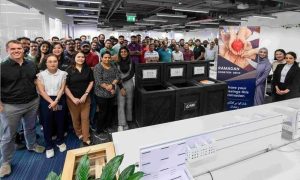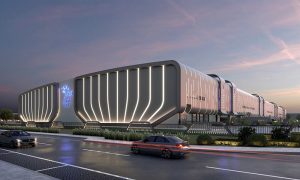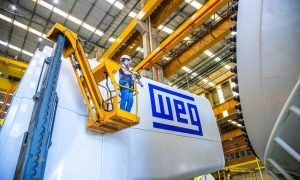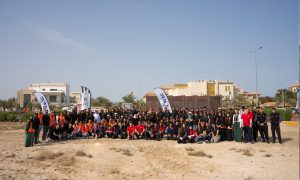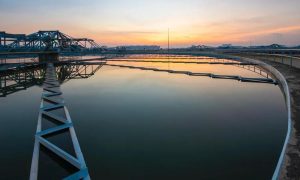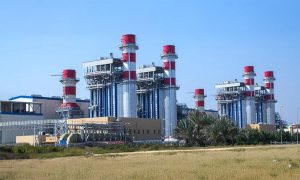HKA’s Successful Launch
Middle East Consultant talks to HKA’s Jeffrey Badman about his firm’s goals and objectives, following its sale and demerger from Hill International
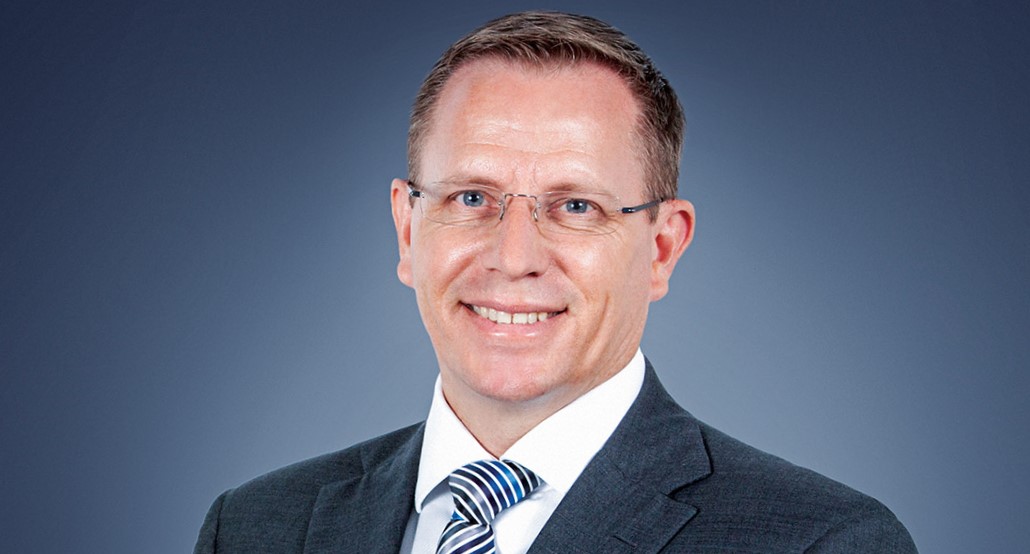
Early last year, news broke that Hill International’s consultancy services division would break away and become an independent company. Continuing to focus on construction advisory, consulting and expert services, the new entity, known as HKA, continued to operate from the 40 global offices its nearly 1,000 strong team of consultants occupied before its sale and demerger from Hill.
The new company’s official unveiling in the UAE took place early in November 2017, at the Palace Downtown Dubai. The gala was attended by 220 guests, as well as several senior executives from HKA, including David Merritt, partner and head of region for the Middle East and Africa, and CEO Renny Borhan. Following the gala, Middle East Consultant caught up with Jeffrey Badman, partner at HKA, to discuss the market, as well as his firm’s business and goals for the future.
Talk to us about the GCC markets in 2017. What key trends/nuances did you notice?
In the first six to eight months of 2017, there was a general lack of liquidity in the Middle East due to the low price of oil. This prompted significant restructuring of organisations and debt across the region, both in government and private entities, which in turn led to a move towards encouraging foreign investment in infrastructure projects, with PPP project finance featuring highly.
Give us an overview of your business in the GCC over the last year, and highlight any stand-out markets or sectors in terms of their value to HKA’s business.
While going through our own transition following the demerger from Hill International mid-year, HKA has focused on its core professional services, delivering high-quality solutions to our clients in the region. We have been engaged predominately on complex power and water desalination projects, which have tended to be immune from prevailing market trends and driven by demand.
What objectives have you laid out for HKA over the next 12 months?
Our focus will be on further developing our relationships with high-quality clients, with the goal of assisting them in resolving their problems, whatever they may be. This is where HKA adds the most value – we decode project complexity and provide the best possible outcomes for our clients.
What changes do you plan to make, if any, to HKA internally to align with market realities?
Our greatest strength is our people. Their knowledge and expertise repeatedly deliver the best possible outcomes for our clients. That is why implementing the HKA Academy is so important to us, to enhance the knowledge and skills development of our people to ensure that we continue to meet and exceed our clients’ expectations.
How do you see the Middle East market shaping up in the next 12 months? Are there any key sectors that you are keen to focus on?
HKA will continue to focus its efforts on core services, delivering high-quality solutions to its clients’ problems on power and water, renewables, infrastructure and oil & gas projects.
Which services/sectors contributed the most to HKA’s bottom line in the last 12 months?
A growing part of HKA’s business in the Middle East is our Expert Group, which provides a triumvirate of engineering, delay and quantum experts, testifying in major disputes. Over the next 12 months, we are looking to grow the technical forensic team to deliver a wider spectrum of expertise.
Are there any markets in particular that you are keen on expanding into in the Middle East?
HKA is looking to continue to build a strong reputation for the new brand name, consolidate its position in the Middle East market and strengthen our relationships with our key clients. We will continue to focus our efforts on our core markets across a variety of projects.
How are you planning to make a mark in that market?
HKA is focused on becoming the pre-eminent globally connected brand in our space, where we will continue to anticipate, investigate and resolve project challenges. As trusted independent consultants, experts and advisers, we will deliver solutions amid uncertainty, dispute and over-run. We aim to expand our portfolio to continue to include some of the world’s largest and most prestigious projects.
What technology innovations/solutions will have the biggest impact in the market?
From a technological standpoint, advances in power storage will have the biggest impact. We will also see increasing use and expansion of augmented reality in the construction industry. We have also found that the need for collaborative tools for managing all stakeholders and increasing communication has been on the rise and is becoming more embraced in the Middle East market. Through the use of these collaborative platforms, we will see a greater desired use of mobile platforms and mobile apps to provide the necessary inputs for these systems.
Wearable technology is a trend that is just coming into the market, and its use will continue to grow as the development improves. We also see the industry moving towards the embrace of Big Data gathering and providing analytics for historical information, building performance and real-time reporting. The need to be able to report on all aspects of a programme management office and the associated projects requires hundreds, if not thousands, of inputs from multiple stakeholders to provide the necessary analytics. This is being supported and driven by the increased acceptance of cloud-based collaboration platforms.






